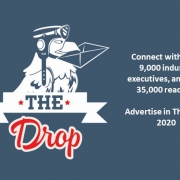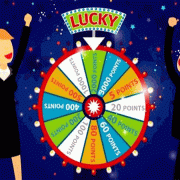13 THINGS MARKETERS CAN LEARN FROM THE ALL BLACKS
With the Rugby World Cup in full swing it’s an opportune time to look at one of the most revered brands in world sport – The All Blacks. And there’s some great take-aways in this article for any brand, sports related or not.
Extracts from an interview by Mumbrella editor, Alex Hayes with New Zealand Rugby’s marketing and communications director Todd Barberel explaining some of the principles he uses to protect and grow the brand.
- Understand the expectations of your brand:
Rugby in New Zealand is not just a sport, it’s a religion. What is it people expect from you as a custodian of that?
The All Blacks have been around since the 1880s, and have grown through different forms and through wins and losses during that time.
The expectations have grown over that time. But the All Blacks brand is NZ’s brand- it’s the people of New Zealand’s. It’s not just about the players in terms of how they view the All Blacks jersey, but also us as brand custodians who are only here for a moment in time. It’s up to us to polish the jewel and leave it in the best state for the future.
2. Outline your challenges:
With an all conquering team what is there left to strive for with a brand like the All Blacks?
New Zealand is a small country – it’s a rock in the middle of the South Pacific. Its not on key broadcast zones in England and South Africa. As a market NZ has its challenges – 4.5m people it’s not large and we’re probably starting to max that out so there is a real need to look to continue to evolve the game globally, but the main point associated with that is the All Blacks only play 13 or 14 matches per year so it’s a very narrow time window we have to perform that.
3. No matter how big the brand is, it’s important to be human:
International fans are important, but how do you keep the locals happy and involved as well?
We have a program called taking the All Blacks to the nation. We introduced it in 2011 and the marketing department says it helped us win the World Cup, although the players might say differently. We invited towns and communities to tell us why you should have the All Blacks for the day. We sent the team out to ten destinations in groups of three or four to communities that never see the team.
It’s important for us very much to try to keep the All Blacks as just an average New Zealander. Yes they perform superhuman deeds on the field but then everyday they are visiting schools and going to rugby clubs and doing a spot of whitebaiting.
It’s a chance for the boys to really realise that’s who they’re really playing for, it’s a strategy for us to connect our team with the people.
4. Do your research:
Can you assume everyone in New Zealand is a fan?
We joke as soon as a person is born in New Zealand they’re an All Blacks fan, our target audience is from one day plus. Doing our market research it’s a changing population a lot of people coming into the country who rugby is not the natural sport. Our research tells us about 83 per cent of people have interest in the ABs and about 60 per cent in rugby, so it does show how people identify the All Blacks as one of the nation’s brands.
There’s metrics we do in terms of jersey sales attendances etc. Only sports that get close to that are the period through the Olympics – that’s about the only time the brand gets competition.
5. To grow your business you have to grow the category:
New Zealand is a very small market, what can you do to push a national sports team brand overseas?
Like every sporting organisation we’re funded the same way – broadcast income, match day receipts and sponsorships. But as a small nation overseas expansion is key for us. There’s a couple of things we’ve done to redefine our strategy over the last five years.
The Sevens coming back into the Olympics is going to change the shape of it, you’ve got the traditional powerhouses and teams like Kenya who can beat any of the top teams on their day. Participation is up 30 per cent and it’s arguably the fastest growing sport in the US at high school.
The rugby market is growing and it’s easy for us with the All Blacks being one of the most recognised brands in the world alongside the Ferrari Formula One team and the Yankees baseball team in the world – our strategy has been to refine it down to what are our key markets.
So for us it’s the famous rugby markets, but looking ahead growth is in America, north and south, but also Asia as the 2019 World Cup is in Japan.
6. How to make the most of a finite resource:
The All Blacks only have a limited match schedule every year, so what other ways are there to take the brand to the world?
The All Blacks only play 13 games per year, 6/7 of them are in NZ, another three as part of the rugby championships, Australia, South Africa and Argentina, and another three are in Europe on tour. So in a 14 week window there’s only one other slot for us. So it’s a real challenge for us to think when we’re going into other markets to think about how we take the ABs brand there.
With Team All Blacks we have six other teams – Maori, Seven’s, Womens Seven’s, Black Ferns and Under 20s.
Across those we have 12 months per year coverage playing across the globe and that gives us a chance to spread the equity of the All Blacks brand and be a touchpoint that’s tangible with our brand in markets across the world.
7. Find the sweet spots where you can work together with your partners to grow:
When the All Blacks play a match in an unusual market, it’s on the basis of a conversation with their brand partners.
We always try and play games with a purpose, so the US game was to replicate the World Cup – we’re playing them in the final game of the World Cup group stage. There was a purpose for going there to replicate the World Cup.
It just so happened one of our partners AIG also wanted to increase their footprint in the States. Across the market research and stats we have it gave us the opportunity to go into the market and establish a brand footprint and in turn maximise our return.
From that we got increased conversations with American partners, and it might not be global partners but from a territory based perspective it’s been very fruitful.
The foundation for a lot of our partnerships in NZ rugby are based on quite honest and upfront conversations. Six of our commercial partners have been with us for 15 years or more so that’s obviously working from a leverage point of view. But as we push out to global markets we want to align where we have our sponsors in markets that are a priority for them as well.
So conversations do occur, there’s no question that AIG had a desire for us to play in America, so when we could fit it in with a purpose for the team and a performance based reason we looked at that. We’ve been up to Japan and Asia as well and the Maori All Blacks have played up there so we’re quite strategic in where those markets are, but we also know in Japan for instance Adidas are wanting to create a bigger foothold there ahead of 2019 [Rugby World Cup] and 2020 [Olympics] it’s important to them.
That said it’s up to us to decide where we play and we’re just working with them to find their markets of interest.
8. If you can’t be someone’s favourite brand, be their second choice:
You’re never going to make a fan support the All Blacks above their team, but is there a way to make them follow you still?
The analogy that we use is to almost become the Brazil of football. What Brazil is to football is what the All Blacks are to rugby.
That’s the philosophy we have when we go into any overseas market we know we’re public enemy number one because of the track record of who we are and how people perceive us but we also know there’s a lot of interest in the brand and that translates when we go to countries like France we sell more All Blacks jerseys there than any other country in the world because there’s a certain mystique or aura about the team. They still support the French on game day, but that’s a strategy we’re trying to take to all the markets in the world.
In America when we play there we want them supporting the Eagles and go hard out, but once we go we want them to continue to follow our brand.
9. Always think about your next brand ambassadors:
After the Rugby World Cup three of the All Black’s most recognisable and greatest players, Dan Carter, Richie McCaw and Maa Nonu, are retiring. How do minimise their loss from a brand perspective?
It’s a moment in time. NZ rugby been blessed with many greats of the game.
I guess how we look at it is there’s always players coming through, indeed in Kieran Reid and Bordy Retallick there are two players continuing through who have already been world rugby players of the year.
That said I’d be lying if I said the loss of these guys won’t have an impact, and I guess we prepare for that and some of that comes back to our brand and the fundamentals of our brand and the All Blacks, and that is the team towers over the individual.
Yes they might be superstars but they are just a member of the All Blacks. We don’t promote the All Blacks by saying come and watch Richie McCaw, he’s just one of the players in the team. And that enables us over time to have a consistent platform that you’re engaging with the team and the players you want to watch.
Part of that is thinking if we’ve got an ad campaign or promotion who do we allocate? We do that on the basis of taking a really senior player, an experienced player, and a junior player so in any of the creative executions we have we’re continually introducing new names and personnel to make people mopre familiar with the team and in the hope some of those players will go on to become legends of the game as well.
At least that means we don’t lose the brand come the end of this year.
10. Establish your key communications principles:
What tenets drive your brand communications?
Respect for the jersey: ordinarily you will not see a player in an All Blacks game jersey unless it’s mimicking a match environment because that’s were the jersey’s seen; that’s the brand value alongside the haka and the performance.
First class communication: If we’re doing things nothing can be contrived
The team towering above the individual
11. Share those principles to your partners, but be flexible:
With a lot of the All Blacks brand being portrayed through marketing by sponsors, how do you make sure they stay on message?
We really start to work through that with our sponsors and we have a narrative we call the All Blacks story which we define as the DNA of the All Blacks. We share that with the agencies and talk about us being a small country at the edge of the earth producing some of the greatest legends the world has known. Into each jersey is woven the hopes and dreams of a nation and with each jersey the players pass on the guardianships of that legend.
Using DNA like that and getting in among your sponsors is important if you’re going to form a partnership with us, this is the brand traits we want them to display.
It’s helpful to get in early to understand what is the strategic objectives of what our partners are trying to achieve and be adaptable as we can with the All Blacks brand and set it up in different ways. I guess we do that somehow differently domestically, which is about bringing the patriotism to the fore, and when we push into that global market we know the culture and the success of the team are quite important. It’s a really upfront open conversations, but at the end of the day it’s making sure any piece of creative aligns to our communications principles.
12. Don’t trade off your success, trade off your potential:
You might be the dominant force in your business, but you have to remain humble.
Our love and interest in the All Blacks when we lost to France in 2007 went through the roof, it just shows even out of a loss the interest can grow in the brand.
We’re very aware that in any game of sport or any industry it can come down to a moment in time where you can win or lose.
We don’t try and trade off the success it’s an outcome that comes from the brand. We’re confident, but you’ll never see us go out and say we’re the greatest in the world.
It might be a marketing strategy that sits behind that to enhance the reputation of the All Blacks as the greatest rugby team in the world, but it’s never something that will go out in the headlines from us because that sets us up to fail.
From that perspective it’s trying to dial into the other brand attributes and talk about the history and the legacy the team has as a fact and that builds the success.
13. Always keep challenger mentality:
How do you prepare to defend your world title?
The team’s mindset is not we’re defending, we’re going there to win it, the cup disappeared from our shores six months ago so the mindset is always about the next game we’re not trading on the past.










